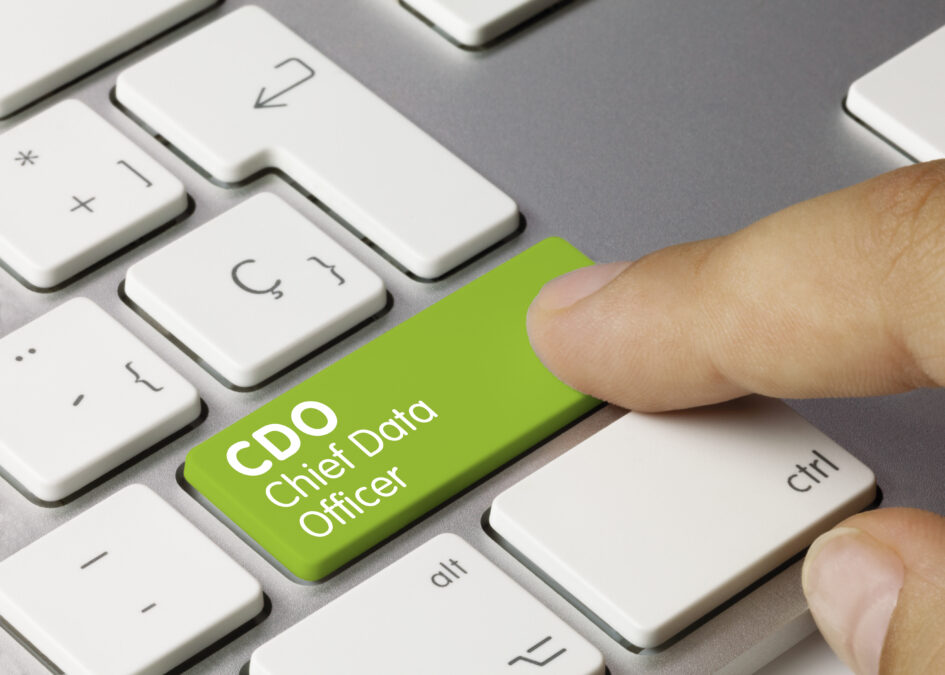The role of the chief data officer (CDO) oversees how data is used throughout the organisation. While relatively new compared to other tech leadership roles, the CDO position is rising in importance, in line with the large part that data now plays in business decisions. Businesses can no longer afford to rely purely on gut instinct, if they are to retain a competitive edge and customer trust.
Demystifying data
The CDO oversees the company’s data strategy and vision, all of which must be clearly communicated to the workforce and stakeholders in a way they can completely understand. While the CEO and other business leaders will want to know how the strategy will affect the business’s bottom line, employees focused on customer engagement will look at how they can use behavioural analytics to the organisation’s advantage, using the strategy.
“CDOs are responsible for the management and use of an organisation’s most important asset: data,” said Peter Jackson, chief data & analytics officer at Exasol.
“More specifically, they are focused on demystifying data at a functional level, identifying and then leveraging the insights that can generate additional revenue streams and/or improve business processes.
“The most impactful CDOs may even recruit ‘data citizens’ across different departments to teach help establish the strategic use of data across their organisation. In doing so, they help to translate data from a confusing, gated asset into an open, useful tool, accessible and actionable to everyone – in other words, they’re establishing a ‘data culture’ within their organisation.”
Jonathan Westley, CDO of Experian, commented: “Paramount to the role is being able to deliver measurable outcomes for the business.
“CDOs help to quantify and prove the ROI of data initiatives in the context of real business value, like customer satisfaction, revenue, or operations excellence. In some businesses they also set the guard rails for the use of data across the organisation.”
2022: a year of data transformation across key industries
Navigating analytics
A prominent aspect of organisational data usage in terms of driving value lies in analytics, which can provide a full, multi-dimensional picture of customer experiences and demands. The CDO will often look to embed use of analytics into the company culture, and will lead the way in navigating best practice.
“As continued digital transformation heightens the need for a culture of analytics, 2022 is undoubtedly the year of the CDO,” said Alan Jacobson, chief data & analytics officer at Alteryx.
“Typically seen as agents of change, the true value of a CDO is as a digital cartographer – a guide who can map out the digital journey while ensuring the average knowledge worker is set up for success and able to directly perform analytics.
“With organisations now looking to fill data science roles with people who can articulate, inform, and explain (and not just code), these attributes will be vitally important when training data scientists to facilitate learning as well as delivering insights. While digital transformation projects often focus on the technology, a good CDO will focus on balancing this with the human factor – encouraging people to be creative and think critically, while driving culture change.”
Decisions based on fact
Analytics allow business and tech leaders to drift away from gut-based decision making, and minimise the risk of missteps, and this can benefit from a CDO’s background in this area.
“Digitally excellent businesses are much more likely to make good use of data whether in revenue generation or developing new products,” said Neil Price, head of practice – CIO & executive technology leadership at Harvey Nash Group.
“CDOs are likely to have a background in large scale analytics and must be able to form a strategy to create a data-rich environment in the business that enables the organisation to understand what customers are thinking and feeling, where the demand points are, and what direction this will go in next.
“But this has to be based on fact rather than feel. Businesses are looking for CDOs who can generate real ROI from data by using it to create tight, outcome-based strategies.”
Minimising reputational risk
As well as using data to provide the best possible customer experience, it’s vital that all assets are compliant in line with data regulations, as well as being secure in the face of rising cyber attacks. CDOs, now more than ever, are heavily focused in these areas.
Narinder Sahota, CTO of Advanced, explained: “CDOs are concerned with the governance and management of data. They are safeguarding intellectual property as well as financial information, so cyber security is high on the list of priorities, as is compliance with all data regulation.
“When things go wrong, a business may face legal costs and reputational damage, which in the worst scenario can be ruinous. It is not unheard of for senior board members to face personal penalties or even a custodial sentence if they are found liable for poor data management.
“Instances of data theft are on the rise, as cyber criminals use ever more sophisticated methods, so the responsibilities of the CDO are not for the faint hearted. However, a good CDO will be on top of all the governance issues that affect data protection and will implement strategies around cyber security to reduce the risks of breaches as far as is ever possible. Using fit-for-purpose digital solutions is integral to a sound data management policy.”
Why digital transformation success depends on good governance
The CIDO: merging the CIO and CDO
Some organisations may opt to bring the positions of the CDO and the chief information officer (CIO) together to create a consolidated CIDO role. With data continuing to rise up the corporate agenda and CIOs and CDOs often working closely together, filling a spot on the leadership team with an executive who can fulfil both roles may be the way forward in the near future.
Price explained: “Larger and more complex organisations will tend to have both a CIO and CDO, who will collaborate continuously and closely. But in some businesses, they may merge the two and have a CIDO.
“There’s huge competition for talent. With typical tenures at around four years for a transformationally-focused CIO, there’s quite a lot of market movement and therefore no shortage of applicants on paper, but finding the right person with the right approach, organisational fit and leadership style is the challenge. CDOs are more specialised and it’s a newer role in a demanding marketplace, so finding the right person here can be harder still.”







